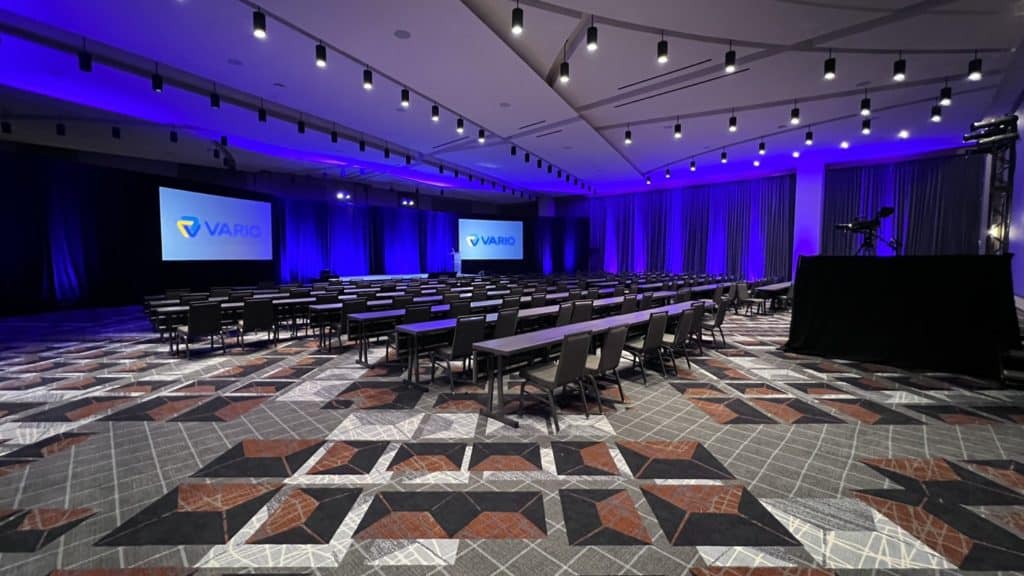Event apps that charlotte event companies use to improve engagement
Wiki Article
A Deep Dive Into How Event Management Works to Develop Memorable Experiences
Event management is a complex self-control that incorporates numerous elements to craft remarkable experiences. It requires a clear understanding of the event's function and target market. Planners need to navigate budgeting, logistics, and advertising to assure a seamless implementation. Each part plays an important duty in accomplishing the wanted impact. Nevertheless, the trip does not end with the event itself. There are understandings to uncover that can shape future ventures.The Principles of Event Management
Effective event management includes a variety of important concepts that lead the planning and execution of effective events. At its core, it includes comprehending the event's function, audience, and wanted outcomes. Recognizing the target market is vital, as it informs choices associated with web content, marketing, and logistics.Budgeting is another fundamental aspect, guaranteeing that resources are alloted effectively while meeting the event's objectives. This consists of preparation for unforeseen expenses that may occur.
Time management plays a crucial function, as event managers must develop a comprehensive timeline to collaborate different tasks and turning points.
Furthermore, effective communication among stakeholders, vendors, and staff member is necessary to ensure positioning and prevent misunderstandings.
Finally, risk management have to be taken into consideration, with backup strategies in position to deal with potential obstacles, therefore improving the general experience for participants and assuring a seamless execution of the event. (charlotte event companies)

Secret Roles in Event Preparation
In event planning, recognizing essential duties is vital for successful implementation. The event organizer is in charge of looking after logistics and guaranteeing all aspects line up with the vision. In addition, efficient supplier management is important for keeping quality and promoting solid collaborations throughout the planning procedure.Event Planner Obligations
An occasion organizer coordinates the complicated components of event planning, guaranteeing smooth implementation from fertilization to final thought. They are in charge of conceiving the event theme, setting spending plans, and producing timelines to maintain the task on track. Sychronisation with stakeholders, consisting of customers, venue managers, and volunteers, is vital to line up assumptions and help with communication. The organizer additionally oversees logistics, such as event catering, transportation, and innovation requires, ensuring all components work harmoniously. They carry out website brows through, manage schedules, and troubleshoot issues that may occur throughout the event. Post-event, the coordinator examines the event's success, collecting comments and analyzing results to educate future projects. This complex role calls for strong business abilities, attention to information, and reliable interpersonal communication.Supplier Management Essentials
Guiding through the landscape of supplier management is necessary for effective event preparation. Efficient vendor management entails determining, choosing, and coordinating providers who offer essential services, such as catering, audiovisual assistance, and design. Event coordinators should maintain solid communication with suppliers to guarantee that all facets align with the event's vision. Trick duties consist of the vendor supervisor, who oversees agreements and arrangements, and the logistics organizer, in charge of on-site arrangement and implementation. It's critical to develop clear expectations and timelines, fostering a collaborative environment that boosts the general experience. By focusing on these aspects, event planners can browse potential obstacles, making sure that every detail adds to a smooth and unforgettable event.Crafting a Vision: Principle Development

When a vision is developed, it ends up being important to equate it right into workable parts. This includes specifying the atmosphere, selecting proper places, and identifying the event's style. Teaming up with stakeholders, including sponsors and partners, even more fine-tunes the principle, making certain that all parties share an unified understanding of the event's function. Ultimately, a well-developed vision not only improves guest interaction however likewise establishes the phase for remarkable experiences that reverberate long after the event ends.
Budgeting and Resource Appropriation
With a clear vision in area, the following action in event management entails mindful budgeting and source appropriation. This critical stage warranties that all essential parts are moneyed and aligned with the event's goals. Event supervisors begin by approximating expenses associated with venue option, catering, home entertainment, and advertising and marketing. They develop a comprehensive spending plan that describes each category, enabling transparency and liability.Resource appropriation expands beyond financial resources; it additionally includes personnels. Identifying group functions, obligations, and timelines is vital to guarantee performance. Event managers should likewise take into consideration contingencies for unexpected expenditures or modifications in scope, developing a buffer within the spending plan.
Additionally, prioritizing investing on aspects that boost visitor experiences is essential. By tactically designating resources, event managers optimize impact while keeping monetary control. This disciplined strategy not just fosters effective occasions however additionally develops reliability and depend on with stakeholders and participants.
Logistics: The Foundation of Event Implementation
While budgeting lays the groundwork for an occasion, logistics act as its backbone, assuring that every aspect is carried out efficiently and efficiently. charlotte event companies. This includes a wide variety of activities, consisting of place selection, transportation plans, and equipment procurement. Efficient logistics management requires thorough preparation and coordination to ensure that all aspects straighten with the event's timeline and purposesKey elements of logistics include stock management, where products and products are tracked to prevent shortages, and staffing, which includes recruiting and training personnel to manage numerous tasks. Communication is likewise essential, as it helps with partnership amongst vendors, sponsors, and the event team.

Marketing and Promotion Methods
Reliable advertising and marketing and promo approaches are essential for taking full advantage of participation and interaction at an event, as they produce interest and excitement the original source among potential individuals. Event supervisors use a mix of standard and electronic marketing methods to reach their target audience. Social network systems, email projects, and targeted advertisements are typically utilized to develop buzz and foster community interaction. Collaborations additional resources with influencers or market leaders can improve reliability, while engaging content such as video clips and testimonies can reverberate with possible guests.Additionally, leveraging event-specific hashtags and developing shareable graphics motivates organic promotion among attendees. Early bird ticket offers and unique promos can incentivize registration, additionally boosting passion. A properly designed website that supplies simple navigation and clear information concerning the event can improve the user experience. By implementing these advertising and marketing and promo useful source approaches, event supervisors can ensure greater exposure and ultimately develop an unforgettable experience for all participants.

Determining Success: Responses and Evaluation
Success in event management pivots on durable responses and evaluation mechanisms. These processes are crucial for determining the effectiveness of an occasion and determining locations for enhancement. By collecting input from guests, coordinators can evaluate satisfaction degrees, recognize preferences, and assess overall effect. Studies and meetings serve as beneficial tools for gathering measurable and qualitative data, enabling thorough analysis.In addition, examining key performance indicators (KPIs) such as presence prices, engagement levels, and return on financial investment (ROI) provides a clearer photo of event success. Post-event debriefing sessions with the preparation group also contribute understandings, promoting a culture of constant improvement.
Ultimately, a methodical approach to comments and evaluation not only boosts future events but also enhances relationships with stakeholders. By carrying out these methods, event supervisors can develop remarkable experiences that reverberate with individuals and drive recurring involvement.
Frequently Asked Questions
How Do Event Managers Deal With Unexpected Difficulties Throughout an Event?
Event managers resolve unexpected obstacles by continuing to be tranquility, evaluating the situation, and carrying out contingency plans - charlotte event companies. They communicate effectively with their team, adjust promptly, and focus on options to ensure the event continues efficiently and efficientlyWhat Modern Technology Devices Are Necessary for Modern Event Management?
Crucial modern technology tools for modern event management consist of event enrollment software program, job management applications, guest involvement systems, and analytics devices. These resources enhance processes, enhance communication, and improve general event experiences for coordinators and individuals alike.Exactly How Do Social Distinctions Influence Event Preparation and Implementation?
Social distinctions considerably influence event preparation and execution. They affect themes, personalizeds, interaction designs, and expectations, requiring customized techniques to guarantee inclusivity and regard, eventually forming the overall experience and success of the event.What Are the Ethical Factors To Consider in Event Management?
Ethical considerations in event management incorporate transparency, sustainability, social sensitivity, and inclusivity. Organizers should prioritize fairness, regard varied target markets, lessen environmental influence, and warranty accessibility to produce responsible and unforgettable experiences for all individuals.How Can Sustainability Be Integrated Into Event Planning?
Sustainability can be integrated right into event planning by utilizing green products, decreasing waste, sourcing local suppliers, executing carbon balanced out programs, and advertising digital options to reduce paper usage, consequently boosting environmental consciousness within the event's framework.Report this wiki page